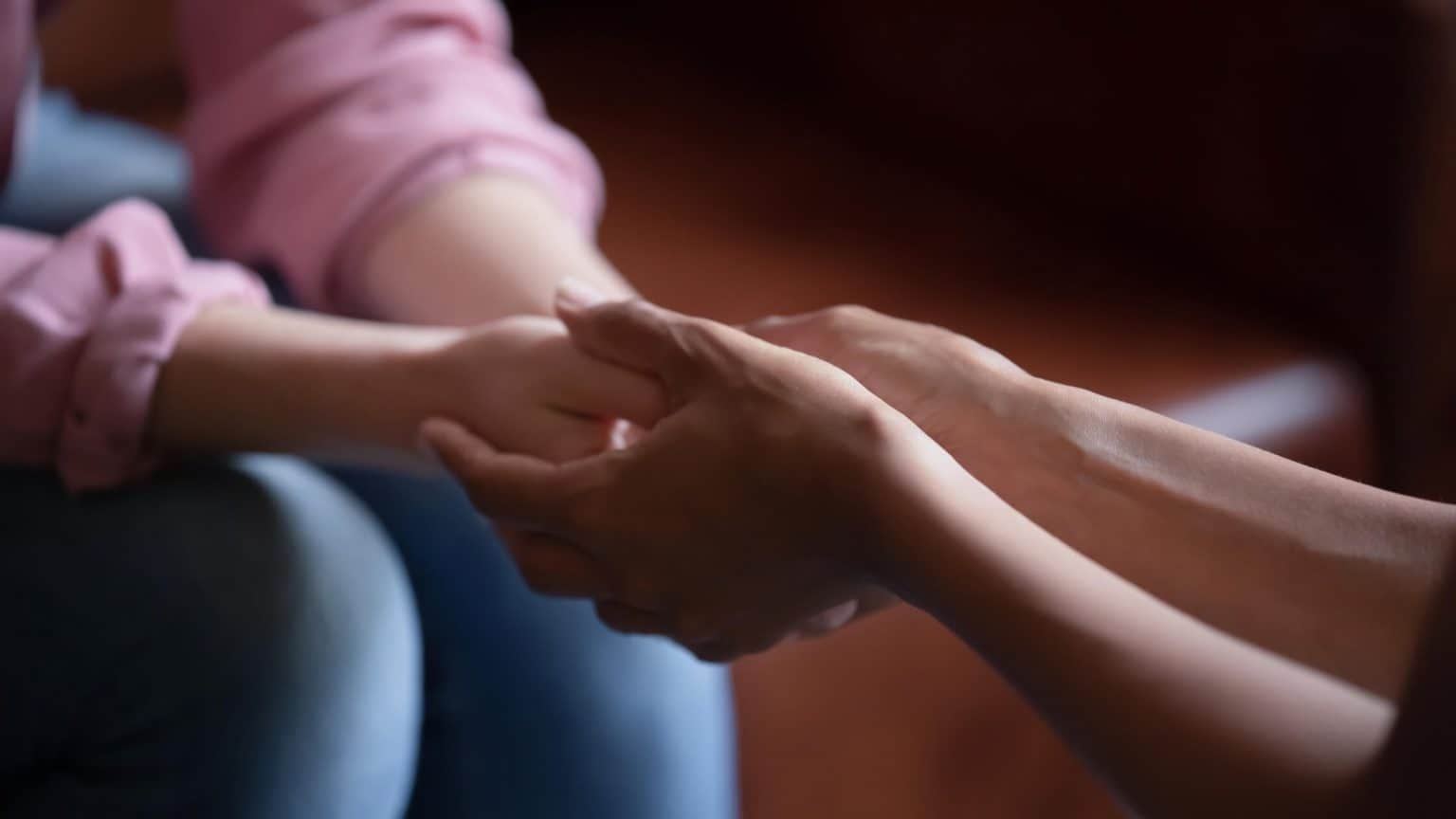Is your first instinct to say “thank you but no thank you” when someone offers to help? Whether it is help with the housework, a project or something else, do you automatically turn them down without even thinking? Even if it is a friend or family member generously offering help, does accepting make you feel uncomfortable?
Being independent is great, but always refusing help can be exhausting and drive your loved ones away. Or maybe you know someone who will not allow you to lend them a hand. People who have trouble accepting help are usually one of two types of people. They are either:
- Someone who is always helping others but has difficulty accepting help themselves.
- The type of person who does not accept help from anyone even when they need it.
It can be difficult to understand why someone refuses help even when they need it. So why is accepting help so difficult?
Why accepting help is so difficult
Why some people have trouble accepting help can be a part of a deeper problem. Even though they are suffering, they cannot bring themselves to lean on others. Do you know why you find accepting help so difficult? Here are some possible reasons why.
It is okay to give but not to receive
A lot of people who selflessly give of themselves helping others have trouble accepting help. From their perspective, it is okay to give but not to receive. It is their role to help when other people need them, but it is not alright to receive help. They are fiercely independent and believe they can take care of their own needs themselves or they ignore their needs entirely.
People who give selflessly may not accept help because they can feel their mission is to help others and accepting help would not fit their image of being totally independent. They may also think that it would inconvenience the other person or cause them problems. And this can cause them to feel shame — for not accepting help and because others think they need it in the first place.

Accepting help generates a debt
You may refuse others’ help because you will then owe the person a debt of gratitude you can never repay. What you do not understand is that helping others gives people a sense of satisfaction. And usually, they do not want anything in return. Sometimes this may need explaining so you understand the offer of help is genuine. And remember, you can always pay their kindness forward.
Rejecting help although you need it
Then there are the people who reject help even though they are doing it tough and need it. A good example of this is people with an addiction or mental health issues. They can respond quite angrily to offers of help and may not be able to admit they have a problem. So, of course, part of their problem is denial. It is important to listen to the person offering help to get a realistic perspective. They are only reaching out because they care about you.
Accepting help can make you feel vulnerable
When you are the sort of person who works hard to be independent and strong, accepting help can make you feel vulnerable. And it can be in conflict with your sense of self. Do you see accepting help as a sign of weakness or failure? Well, it is not. People giving and receiving help is a normal part of the fabric of our society. It is not a reflection of your strengths or weaknesses.
Undeserving of assistance
When you feel you do not deserve help, you may also reject someone’s offer of help. Dealing with low self-esteem and other mental health issues could make you feel guilty for imposing on other people. You bottle up your feelings and deal with life’s challenges on your own instead of accepting any help. And this can make life so much harder.

How to let others in
Regardless of who offers their help, automatically refusing can damage your health and relationships. But you can get better at accepting help. Here are some ways to help you get better at accepting assistance from others.
Why does it make you uncomfortable?
Think about why accepting help makes you uncomfortable. Are you too proud? Did something bad happen in the past after you accepted help? Whatever it is, once you discover the source of discomfort, it is possible to start challenging it.
Consider how the other person feels
Consider how the other person feels before you reject their offer. Put yourself in their shoes. How would you feel if it were someone rejecting your kind offer of help? If you are always the one helping, accepting an offer of help is an opportunity for others to do the same thing. And to return the favour.
Surrender to vulnerability
To accept help, you need to be vulnerable and give up some control. Some people can see this as being weak. But being vulnerable is not a sign of weakness. It requires great strength of character. For some people rejecting help is a defence mechanism to protect them from being hurt. What they do not understand is that by putting up a protective shell it also blocks them from receiving care and love from the people in their lives.
Analyse your beliefs
Analyse your beliefs on receiving help and why it makes you feel so uncomfortable. Consider:
- What is it that stops you from saying yes to someone’s offer of help?
- If you feel you do not deserve other people’s kindness, what makes you feel that way?
Usually, it is something within you that makes you refuse help. For example, it could be the memory of past experiences that influence your beliefs about receiving:
- Did your parents accept help from others?
- Were your parents suspicious of people’s motives when they offered help?
- Did someone call you greedy or a user because you accepted help in the past?
- Were you always told as a child that it is better to give than receive?
- Do you have a low level of self-worth because you were never rewarded or praised as a child so now you believe that you are not worthy of others’ help?
No matter the reason, you need to understand that if someone offers their help, they think you deserve it.

Practice receiving and gratitude
Practice being a receiver. Accept help next time someone offers. Thank someone for their compliment. You do not have to return the compliment. Show gratitude. Thank them and feel good about yourself.
Also be aware of all the gifts you receive from the universe every single day. Many of which you may not even be aware of or take for granted. For example, the clean air you breathe, fresh food to eat, trees that offer shade, water to drink to keep you alive and to wash in. Be grateful for the beauty of the world you live in and how it provides for your needs.
Start a gratitude diary and write down everything you are grateful for daily. For example, be grateful to the waitress who looked after you at the café, or for a break to clear your head, or for the ability to get in your car and drive anywhere, or the person who gave up their seat on the train for you. Practicing gratitude can help you to become a better receiver.
Seek professional assistance
When your inability (or an addiction or mental health issue) to accept help is a persistent source of stress, consider seeking professional assistance. You may feel more comfortable accepting help and support from a professional. They can help you turn your life around.
We are here to help
Many people have trouble accepting help from others. And it can often be because they either feel unworthy or believe they do not need help. So, if it becomes a source of ongoing stress and anxiety, this will continue until you do something about it.
With some simple changes to your life and practice, you can learn to accept people’s offers of help graciously. Show gratitude to them for showing how they feel about you. But if it has become a problem, or you have an addiction or mental health issues, it is time to turn it around. Time to do something positive about it. Seek help. You do not have to go through it alone. The sooner you get help, the sooner you can start accepting help and strengthen your relationships.
Reach out
If you are struggling, consider reaching out to our professionals. When you are not coping, contact us to discover how we aim to help get your life back on track. But if you reach a crisis point, call us immediately. We are here to support you. We may help you deal with things quickly.
We can work with you over the phone, via Skype or in our Spas. Book in today for my Emotional Empowerment Program. I have an introductory offer for just $79 so you may start taking back control of your life. We aim to help you cope with any mental health challenges or addictions. Our facilitators may alleviate the effects of depression and anxiety, so you have more self-esteem and start to feel optimistic and happy again.
Let me help alleviate the effects of mental health issues
My Emotional Empowerment Program has helped many people like you for more than a decade. My aim is to help you replace refusing help to accepting it. This can give you a new hope for the future. A future filled with happiness, peace and contentment in weeks not years. Listen to what Kate has to say about my program after only a few sessions.

Give the Blissiree ™ a try by booking a free 25-minute telehealth consultation. Or discover a seamless way to rejuvenate your emotional and mental health by becoming a member. It will give you access to more than 75 audio programs that can help your child and you to live inspired and improve mental wellbeing.

